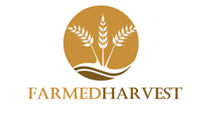Farmers markets offer unique opportunities for small businesses.
The markets’ direct-to-consumer sales model allows vendors to simultaneously make money, promote their products, receive customer feedback and build brand recognition in the local community.
How farmers, artisans, craftspeople and vendors navigate selling at farmers markets can have a big impact. Here is a look at five small businesses that sell at local markets.
Horseshoe Farm
Horseshoe Farm is a small, 21-acre farm near downtown Travelers Rest that grows organic, seasonal produce. Owner Chris Miller has sold his produce at the Travelers Rest Farmers Market since 2019.
The farm also sells produce to local restaurants and through its farm-share program boxes that consumers pick up weekly. Each revenue stream brings in around 30% of the farm’s profits.
After years of selling at the farmers market, Miller has learned how external factors like the weather can impact the amount of people at the market and how much produce he sells. He said it is important for him to sell his produce through different avenues to balance out any losses he might have.
“The market specifically helps have that cash flow continue throughout the season before going into a slower winter months,” Miller said.
Journey by Nature

Journey by Nature, a natural skin-care business, has sold homemade products at Village Launch Market in Greenville since 2022. Owner Cluffy Dawkins Casstevens learned about the market while completing Village Launch’s Business Entrepreneur Academy.
She decided to start selling at the market to increase her brand awareness and reach a customer base that supports minority- and women-owned businesses. Casstevens said she makes around $500 at the monthly market, approximately 30% of her total profit.
“You’re taking a risk,” Casstevens said. “You’re building your brand. You have to understand that you have to build the trust of people so it may be two or three markets before you see a profit but just be grateful you’re able to do the market.”
Casstevens has learned the importance of brand marketing to stand out among other vendors selling similar products at the market. She said she has paid close attention to her packaging and how she decorates her booth at the market.
Becca’s Beeswax Wraps

In 2022, Rebecca Wade launched her company, Becca’s Beeswax Wraps, which sells reusable food wraps made from sustainable materials and beeswax. Along with online and wholesale, the company sells its products at Greenville’s TD Saturday Market and the Traveler’s Rest Farmers Market.
Wade said farmers markets allow her to interact with her customers, explain her product and get feedback. Many of the people who purchase her beeswax wraps online are also returning customers who heard about the business at the farmers market.
“It’s nice because I get to touch a whole new group of people that maybe haven’t heard about (beeswax wraps),” Wade said. “It takes a lot of face time to explain it and it’s fun to be out there and do it myself.”
To operate at two locations, Wade pays employees to help work the farmers markets each Saturday. Two people work at each booth and are each paid $20 an hour. Wade also has two people who help her prep her products each week.
Good Enough Coffee Co.

Bethany Garrison started her microbatch coffee-roaster business, Good Enough Coffee Co., in 2022. The company sells coffee beans at the Travelers Rest Farmers Market and wholesales to local vendors.
Approximately 75% of the company’s profits come from selling at the farmers market. Compared to wholesale, Garrison said she makes more profit at the market because of the direct-to-consumer sale.
“I don’t have the overhead and I’m not losing some to the wholesale percentage that we split,” Garrison said. “It makes a lot of sense business-wise.”
Garrison believes the prep for the farmers market, however, can be more intense than for wholesale. It takes her around five to six hours to roast and package around 20 bags of coffee beans, prep 15 liters of cold brew and transport the products to the market.
Rabbit Crest Farms

Rabbit Crest Farms is a small-scale, family-owned farm that grows organic produce and flowers on a quarter-acre lot in Greenville. The farm was established in 2021 and has been a vendor at the TD Saturday Market for three years.
Elijah Kivett, the farm’s co-owner, said a mix-match system with flat-rate pricing for produce has proven to be the best model. The goal is to offer fair pricing so that Rabbit Crest Farms leave the market with no leftover produce.
“I do try to keep everything in a simplified system where it’s $3, or two for five, whether that be a bunch of broccolini or half a pint of tomatoes,” Kivett said.
Around 50% of the farm’s profits come from selling at the market every Saturday. The farm’s additional revenue streams include hosting events and selling wholesale flowers to local vendors.
“I would not be exaggerating by saying I don’t think the farm would be where it is without the market,” Kivett said. “If you are a really small farm, you need your bread and butter to be some kind of direct-to-consumer and farmer’s markets are going to be the easiest way to do that.”
Application process
Small farmers and businesses must go through an application process to be selected as a vendor at a farmers market. This year, the Travelers Rest Farmers Market admitted 130 vendors from a 181-application pool. An average of 95 vendors sell at the market every Saturday.
Jessica Mullen, Travelers Rest Farmers Market’s director of marketing and development, said the market has a ratio of vendors:
- 50% farmers
- 30% food vendors
- 20% artisans
Applications for the Travelers Rest Farmers Market open in March and it costs the businesses $60 to apply. Mullen explained the main two elements they look for are the business’s market readiness and whether their products are duplicates of other vendors’ products.
Farmers markets in Greenville County






 No products in the cart.
No products in the cart.